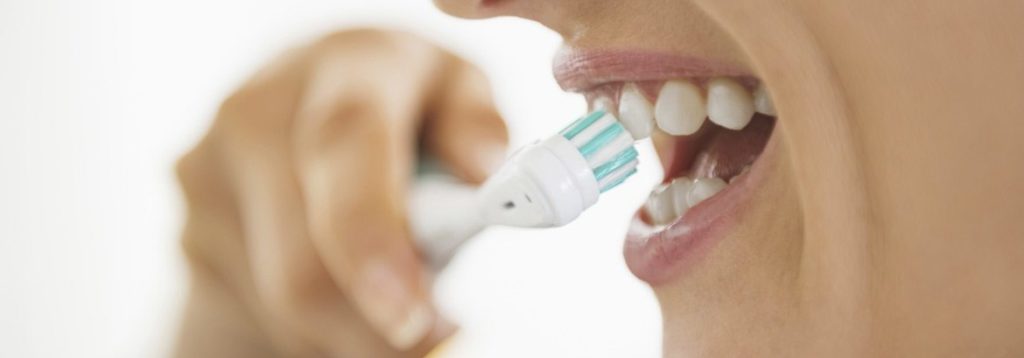What Bleeding Gums Means After Brushing

As a Portland family dental care provider, our staff at South Waterfront Dental receives a lot of questions from patients regarding their oral health. Since a better understanding of your oral health is the best way to enjoy a lifetime of healthy teeth and gums, we’re happy to provide any answers you may have concerning the inner workings of the mouth.
One question we hear from patients is – What does it mean if my gums bleed after brushing?
Well, if your spit has a pinkish color after every time you brush, odds are you suffer from gum disease.
Gum Disease & Your Oral Health
Gingivitis – a mild form of gum disease – is the result of a chronic buildup of plaque, a sticky biofilm comprised of harmful oral bacteria and food particles that remain in the mouth after eating. When plaque is allowed to build up on the surface of your teeth and along the gum line, it slowly hardens into tartar. Tartar appears as a yellowish film on the surface of your teeth, and can only be removed during a dental cleaning with a Portland family dental care provider.
The longer plaque and tartar are allowed to remain, the more swelling and inflammation the substances will cause to the surround gum tissue. The routine act of brushing causes irritation to your swollen gums, thereby resulting in them bleeding after you brush.
Because gingivitis causes very little discomfort, most patients don’t even know they suffer from the disease until it has progressed into a more serious form of gum disease. While a little blood may seem like a simple inconvenience, gingivitis can quickly escalate into a far more serious condition known as periodontitis.
Periodontitis is a more advanced form of gum disease that poses a serious threat to your long-term oral health. Unlike gingivitis, periodontitis actually attacks your gum tissue and the surrounding bone structure that holds your teeth into position. In time, your teeth will become lose due to the lack of support, and will eventually fall out. Periodontitis ranks as the leading cause of adult tooth loss.
Even more troubling, studies have linked periodontitis to a range of chronic long-term illnesses that can pose a very real risk to your overall health. Researchers have found links between advanced gum disease and such chronic illnesses as heart disease, stroke, diabetes, obesity, Alzheimer’s disease and cancer. This research shows that by simply by allowing your oral health to deteriorate, you significantly impact not only the health of your teeth and gums, but your overall health, as well.
Keeping Your Teeth & Gums Healthy
Fortunately, you can avoid gingivitis by practicing quality oral hygiene at home. The American Dental Association – and the friendly staff at your favorite Portland family dental care provider – recommends brushing at least twice a day, for two minutes at a time. The ideal time to brush is once in the morning and again at night before bed. However, if you want to really enjoy the best oral health possible, you should consider brushing after every meal.
While brushing ranks as the most important habit to prevent gum disease, flossing is a close second. The ADA recommends patients floss at least once a day, ideally right before brushing at night. Of course, you can really go the extra mile and floss after each meal, even if you don’t brush, as well. Patients also need to schedule regular dental appointments with Dr. Beck and the rest of our staff at South Waterfront Dental to enjoy the best oral health possible.
That’s all you need to do in order to dramatically reduce your risk of gum disease and all of the other illnesses we discussed. So the next time you don’t feel like brushing or flossing, just remember the great impact such a little decision can have to your overall health.
